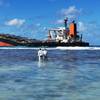Leading shipping accountant and business consultant Moore Stephens say draft EU Guidelines on state aid to maritime industries are creating uncertainty
and problems for the UK Tonnage Tax scheme. The new guidelines, which must
be accepted by member states by June 30, 2004, and enter into force one year
later, will oblige owners with fleets in the UK Tonnage Tax regime to
increase the proportion of their vessels under an EU flag.
Sue Bill, shipping tax partner at Moore Stephens, says, "The new guidelines
have some very positive aspects, such as the inclusion of dredging companies
and shipmanagers into tonnage tax. But they are also a potential problem for
UK owners who had to opt for tonnage tax in 2001 for a ten-year period.
There were no specific EU flag requirements at that time in the UK rules.
Now the UK will be forced to introduce flag rules, which will change the
conditions under which UK-based Tonnage Tax owners operate. As the tonnage
tax election is for the long-term, the UK Government has so far left the
rules unchanged, with the exception of certain anti-avoidance legislation.
However, there is now uncertainty with regard to flagging. Moreover, it is
clear that, despite the fact that owners have made a ten-year commitment,
significant changes may be made to the rules after a commitment has been
made. This EU move may not be good for owners, may not be good for UK
shipping and may not be good for the future of the UK tonnage tax regime.
The outcome will depend on how the UK authorities implement the final EU
Guidelines."
The EU issued new guidelines on State Aid to Maritime Transport on 17
January 2004. Tonnage tax regimes in the EU are regarded as State Aid to
Maritime Transport. The guidelines included some new rules which would mean
that the UK Government has to change the UK Tonnage Tax Regime. These
included:
1. EU Flag Requirement
The guidelines state that Member States should ensure that tonnage
tax companies or groups increase or at least maintain the percentage of
their tonnage flagged under an EU flag. If this is not the case, then any
additional non-EU flagged vessels will be outside tonnage tax unless the UK
Government can show that the percentage of EU flagged vessels in tonnage tax
is not decreasing. This will not apply to companies or groups which have at
least 60% of their tonnage under an EU flag.
It is not yet clear how the UK Government will implement these
requirements. However, any changes are likely to cause problems in practice
where the tonnage tax company or group time charters in vessels as it will
be difficult to enforce a flag requirement in a time charter. Under the UK
tonnage tax regime, a company or group can have up to 75% of its net tonnage
time chartered in. The remaining 25% must be either owned or bareboat
chartered in. Many UK companies in tonnage tax do not have any ships under
either UK or EU flags, but are based here, as required by UK legislation.
The new guidelines would make it more difficult them to charter or buy new
ships, as they would fall outside the regime unless suitably flagged.
2. Ship Management Companies
The guidelines state that it seems appropriate to extend tonnage tax to ship
managers. Ship management companies would however only qualify in respect
of vessels for which they have been assigned the entire crew and technical
management. In particular, ship managers would have to assume from the
owner the full responsibility for the vessel's operation and take over from
the owner all the duties and responsibilities imposed by the ISM code. Any
other specialised services, even if related to vessel operation, would be
excluded.
3. Dredging activities
Dredging activities are not eligible for tonnage tax. However, the
guidelines say that tonnage tax regimes may be applied to dredgers whose
activities include "maritime transport", that is, the transport at deep sea
of extracted materials, for more than 50% of their annual operational time.
UK aggregate dredgers would therefore be able to enter the tonnage tax
scheme.
4. Towage activities.
Towage activities may be included in tonnage tax only if more than
50% of the towage activity carried out by a tug during any given year
constitutes "maritime transport". The guidelines emphasise that towage
activities which are carried out in ports, or which consist in assisting a
self propelled vessel to reach port are not regarded as "maritime
transport".
Member States are asked to confirm that they accept the proposals in the
guidelines by 30 June 2004. The UK Government intends to confirm that it
accepts the proposals. It is proposed that Member States amend their
existing tonnage tax schemes so as to comply with the revised guidelines by
30 June 2005. The guidelines will be reviewed within seven years of their
date of application.
Subscribe for
Maritime Reporter E-News
Maritime Reporter E-News is the maritime industry's largest circulation and most authoritative ENews Service, delivered to your Email five times per week










